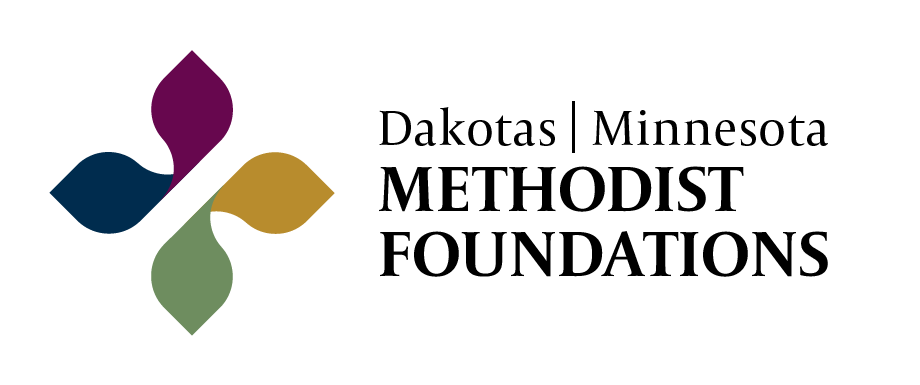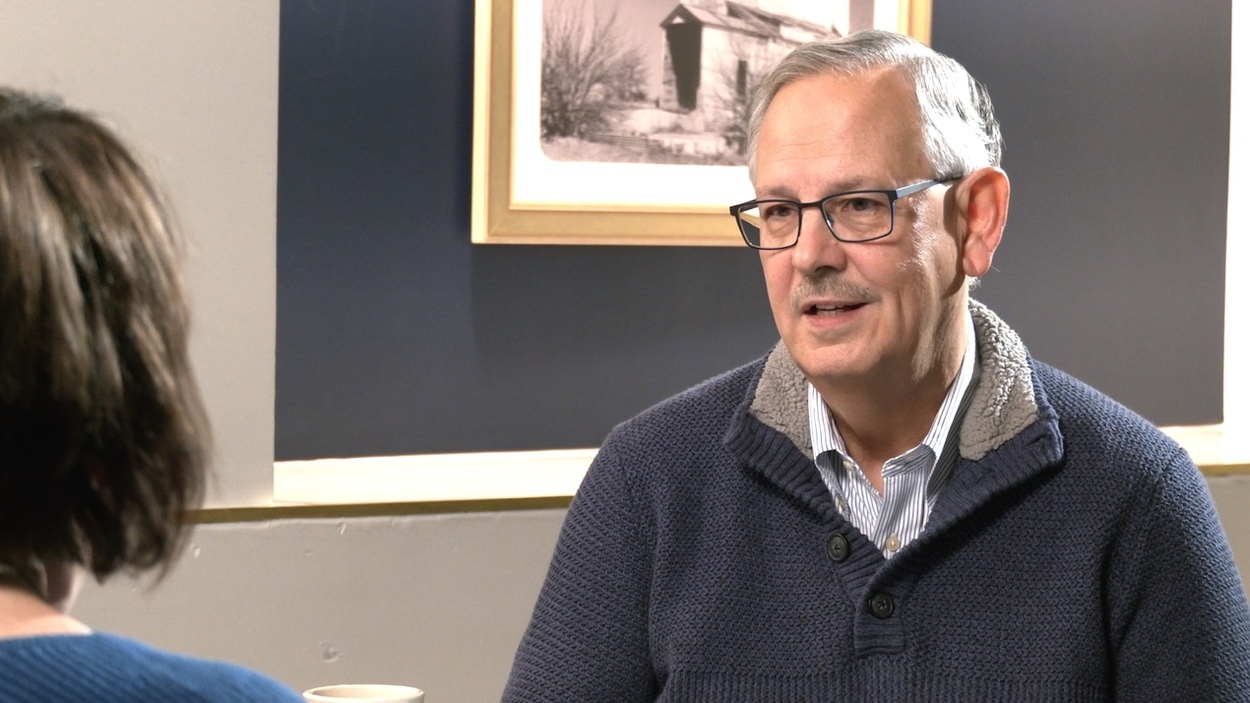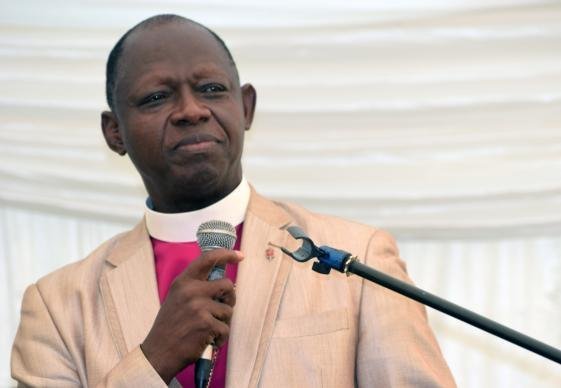
Diverse leaders’ group offers separation plan, Bishop Ough reflects on it
A diverse, 16-member group of United Methodist bishops and other leaders has offered a proposal that would preserve The United Methodist Church while allowing traditionalist-minded congregations to form a new denomination. The separating group would get $25 million in United Methodist funds and would keep its local church properties.
Details are in a nine-page “Protocol of Reconciliation & Grace Through Separation,”released Jan. 3 along with an FAQ.
The proposal—reached with the help of famed mediator Kenneth Feinberg—requires approval by the 2020 General Conference. Drafting of legislation is still underway for the legislative assembly, which is the only body that speaks for the 13 million global denomination.
But given the broad, influential coalition involved—including bishops from around the global connection and advocacy group leaders often sharply at odds—the potential seems strong that the separation proposal can end or at least greatly reduce the denomination’s decades-long struggle over how accepting to be of homosexuality.

“I think it is probably the best that we have before us currently that would allow for a gracious and dignified process for us to separate,” Bishop Bruce R. Ough, resident bishop of the Dakotas-Minnesota Area, said Monday in reflecting on the proposal. “In the Dakotas-Minnesota Area, we have been talking for some time about: Let’s look at all of the debate that’s been going on as God trying to birth something new. So I’m taking the position that maybe this is an answer to that prayer… It feels at the moment as if it’s a breakthrough, even as difficult as it is to think about us breaking relationships and separating from one another.”
New York Conference Bishop Thomas Bickerton, part of the group that created the protocol, said the contentious 2019 special called General Conference in St. Louis underscored intensifying divisions and the need for amicable separation.
“It became clear that the line in the sand had turned into a canyon,” Bickerton said. “The impasse is such that we have come to the realization that we just can’t stay that way any longer.
“This protocol provides a pathway that acknowledges our differences, respects everyone in the process and graciously allows us to continue to live out the mission of making disciples of Jesus Christ for the transformation of the world, albeit in different expressions.”
The plan looks toward a restructuring of the remaining global United Methodist Church into regions, with flexibility to adapt church policies, including on LGBTQ inclusion.
Meanwhile, traditionalists forming a new denomination could continue what they see as Bible-supported restrictions on same-sex marriage and ordination of gay persons as clergy.
Key elements of the group’s proposal include:
- The General Council on Finance and Administration of The United Methodist Church would provide $25 million, over four years, “to the traditionalist Methodist denomination established pursuant to this protocol.” The new denomination would give up further claims to United Methodist assets, including those of general boards and agencies.
- GCFA would escrow $2 million to help other potential new denominations.
- To support communities historically marginalized by racism, GCFA would allocate $39 million over eight years to strengthen Asian, Black, Hispanic-Latino, Native American and Pacific Islander ministries, as well as Africa University. Of that total, $13 million would come from funds the separating traditionalist denomination chose to forgo.
- After the 2020 General Conference, set for May 5-15 in Minneapolis, there would be a special General Conference for the remaining denomination. “The protocol also references a plan which calls for a special General Conference of the post-separation United Methodist Church. The purpose of the Special Session would be to create regional conferences, remove the current prohibitions against LGBTQ persons, and to repeal the Traditional Plan,” said a press release from the negotiating group.
- A (non-U.S.) central conference would be able to choose with a two-thirds vote to affiliate with a new Methodist denomination. The vote deadline would be December 31, 2021, and if no vote is taken the conference remains in The United Methodist Church.
- An annual conference, whether in a central conference or U.S. jurisdictional conference, also could vote to affiliate with a new Methodist denomination. A vote of 20 percent or more at an annual conference session would be needed to have the disaffiliation vote, and a disaffiliation vote would have to pass by 57 percent. The disaffiliation vote deadline is July 1, 2021.
- The leadership body of a local church considering disaffiliation could determine a threshold of a simple majority or two-thirds for the vote on whether to separate. Decisions about disaffiliation must be made by December 31, 2024.
- A local church affiliating with another Methodist denomination “pursuant to the protocol” would keep its assets and liabilities.
- The pension plans of The United Methodist Church would remain in place for all current clergy and lay employees, even if they affiliate with another Methodist denomination under the protocol.
Ough said he especially appreciates the proposal’s provision for self-determination and self-governance in each of the geographic regions of The United Methodist Church that would remain because it recognizes the vast cultural differences that exist in various parts of the world. The commitment to stand with all of the marginalized populations and communities within The United Methodist Church, is also “very significant,” he noted.
He also appreciates the immediate, voluntary secession of processing complaints against LGBTQ clergy and clergy who perform or officiate at same-gender marriages. “I just want to be on record that as bishop of the Dakotas-Minnesota Area, I will comply with that voluntary secession,” he said. “And the reason is: At a time when there are very sort of tender and fragile conversations going on and while people are trying to absorb all that’s before us, we just don’t need more fire fights.”
Last, Ough is thankful that the proposal calls for a United Methodist Church to remain and that local churches and annual conferences can be part of it without having to take a vote.
“I want to be sure that when all is said and done, if we need to separate…we can do that with an embrace and a genuine respect and love for one another,” Ough said. “Although I hope neither the Dakotas nor the Minnesota Conference will separate from The United Methodist Church, particularly if this protocol goes forward, I do know that we will be prepared.”
The traditionalist Wesleyan Covenant Association already has taken steps toward forming a new denomination, such as drafting a book of policies and doctrines. Bickerton and the Rev. Keith Boyette, WCA president, said the negotiating team’s assumption is that the new church would emerge out of the WCA.
Boyette was part of the group developing the proposal. He said traditionalists have long felt that divisions in The United Methodist Church were irreparable, and that an amicable separation was the best way forward.
“I believe this is a fair and equitable solution that puts decades of conflict behind us and gives us a hopeful future,” he said.
Also negotiating and signing onto the agreement was Jan Lawrence, executive director of Reconciling Ministries Network, which has long sought to remove restrictions against LGBTQ participation in the denomination.
“As a United Methodist who is LGBTQ, my priority at the table was to make sure we addressed the full participation of LGBTQ people in the life of the church, making sure the answer was not `ask us again in 2024,’” she said. “The language needs to be removed now. I am pleased that there is opportunity here for that to happen in 2020.”
The new proposal would allow other United Methodist churches to form their own denominations, while foreseeing ecumenical agreements and cooperation on some fronts.
Representatives of traditionalist, centrist, and progressive advocacy groups joined with a handful of bishops from the U.S., Africa, Europe and the Philippines to reach the agreement. They promised to support it and no other.

File Photo: Bishop John K. Yambasu, of the Sierra Leone Area. Photo by Eveline Chikwanah, UMNS.
“We humbly offer to the delegates of the 2020 General Conference the work which we have accomplished in the hopes that it will help heal the harms and conflicts within the body of Christ and free us to be more effective witnesses to God’s Kingdom,” said Bishop John Yambasu of Sierra Leone, who last summer began the private talks that led to the proposal.
The group had the help of Feinberg, who oversaw the victims’ compensation funds after 9/11 and the BP Deepwater Horizon oil spill disaster.
Feinberg donated his time, as did other lawyers who helped the group.
“(Feinberg) has a deep interest in religion and the preservation of the public witness of religion, and this is what intrigued him and enabled him to say `yes’ to us,” Bickerton said. “We are extremely indebted.”
Feinberg called it “an honor and a privilege” to be part of the negotiations.
A clear catalyst for the negotiations was the 2019 General Conference, which saw passage of the Traditional Plan reinforcing restrictions on same-sex weddings and ordination of LGBTQ persons—but also igniting passionate, ongoing resistance in the U.S. by full inclusion supporters.
The tougher enforcement provided by the Traditional Plan went into effect Jan. 1, but the new proposal calls for holding “in abeyance” any administrative or judicial processes related to same-sex weddings or ordination of gay clergy.
“You cannot stop someone from filing a complaint. Neither can you stop someone from requesting a trial,” Bickerton said. “You can hold a complaint in abeyance. That’s our request.”
Though the petition deadline for the 2020 General Conference is months past, church rules allow for special annual conference sessions to consider submitting additional petitions. Bickerton noted that some such sessions are already planned for the weeks ahead.
The General Conference Committee on Reference also can allow late petitions.
The group behind the new proposal has asked the Council of Bishops to request that the Judicial Council consider the constitutionality of the still-being-developed legislation before the opening session of the 2020 General Conference.
The group also wants the Council of Bishops to seek a report from GCFA on the financial impacts of the proposal.
Various plans for dramatically restructuring or breaking up The United Methodist Church are already headed to the 2020 General Conference, and a range of behind-the-scenes talks about the denomination’s future have been underway.
Yambasu organized a meeting in Chicago on July 19, 2019, that brought central conference bishops together with five representatives each from the traditionalist, centrist, and progressive camps.
A smaller group met Aug. 16-17 at Floris United Methodist Church, in Herndon, Virginia, to start the mediated negotiations that led to this new proposal. The group would expand, mostly with bishops, as the process continued.
Key sessions with Feinberg occurred Oct. 17-18, Nov. 11-12 and Dec. 16-17 in Washington.
Council of Bishops President Kenneth Carter was among the far-flung episcopal leaders who joined in discussions and signed the agreement. So did Yambasu from Africa, Bishop Rudy Juan from the Davao Area in the Philippines and Bishop Christian Alsted from the Nordic-Baltic Area in Europe.
Boyette and Patricia Miller represented the coalition of traditionalist groups that includes the WCA, Good News, the Institute on Religion & Democracy, and the Confessing Movement. Lawrence, Randall Miller and the Rev. David Meredith were there for Reconciling Ministries Network, Methodist Federation for Social Action and Affirmation, and Meredith is listed in the protocol as a member of the UM Queer Clergy Caucus.
The group noted in its FAQ that participants represented themselves and could not speak “for all of any group.” After details were announced, both MFSA and the UM Queer Clergy Caucus stated that their groups were not officially represented in the discussions.
The Rev. Tom Berlin and the Rev. Junius Dotson represented UMCNext, Mainstream UMC, and Uniting Methodists.
Those in the room consulted with “outer circle” advisers, as well as financial experts.
“The process was a journey,” said Dotson, top executive of Discipleship Ministries. “It was filled with anxious moments. It was filled with moments of hope. I definitely felt the weight of these discussions.”
All of those signing the protocol agreed to support the development and implementation of enacting legislation.
“The fact that we were able to come together from across the world, from across theological spectrums and define an opportunity to collaborate for the sake of the church we all love is a monumental thing,” Bickerton said.
He added: “My hope would be that the delegates to the General Conference would be able to employ that same spirit as they undertake their work in Minneapolis.”
A live-stream panel discussion with members of the Mediation Team will be held on Monday, Jan. 13. Additional details will be provided in the days ahead.
Hodges is a Dallas-based writer for United Methodist News. Kathy L. Gilbert contributed.